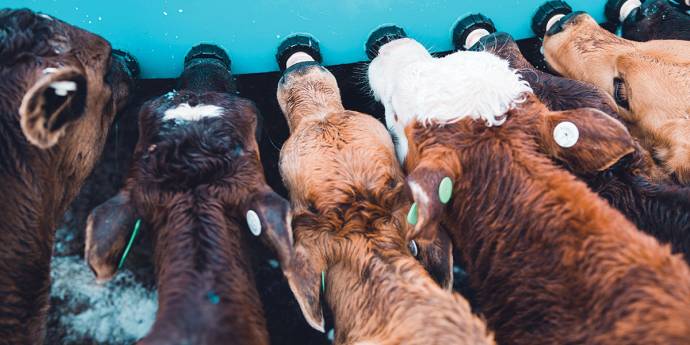Tackling the climate crisis and growth go hand in hand
Climate Minister Simon Watts expects investment in climate action to generate economic benefits.
The challenge for governance is to change the messaging on value, ensuring primary producers are regarded as highly valued environmental enterprise managers, producing food while managing the land sustainably.

The primary sector cushioned the economic impact of Covid-19 by continuing to operate during lockdowns – the privilege of being deemed essential workers meant farmers and growers were able to go on milking cows and harvesting vegetables and fruit, albeit under very difficult and increasingly expensive circumstances.
The descriptors of ‘difficult’ and ‘expensive’ have continued to be appropriate and are compounding with an ever-increasing regulatory (read ‘paperwork’) burden. The Covid-related value that radiated towards the primary sector during 2020 appears to have evaporated in the face of the constant suggestion that farmers are the despoilers of the environment.
It’s not surprising, then, that it is increasingly difficult to find Kiwis that want to work in the primary sector.
Workforce shortages have featured in the media and various recruitment programmes such as ‘GoDairy’ have appeared, but the fundamental problem remains – the primary sector in general, and the dairy sector in particular, is more famous for hard work and environmental impacts than the nutrition it provides.
New Zealand’s dairy sector provides almost 1% of the global requirement for essential amino acids, for less than 0.05% of the world’s GHG emissions.
The message needs changing and the value proposition made clear.
The role of governance, which always includes rigour of debate, is to ask the questions that will bring clarity to the path forward, balancing the long and short term.
The starting point is that New Zealand has probably reached peak ruminant animals. The number of people required on the farm has also probably peaked. But rural professionals will continue to increase, driven by regulation.
The On-Farm service being established by MPI to assist with Farm Environment Planning is an example of a new and people-hungry initiative.
“Workforce shortages are a failure in governance at all levels. The failure was in understanding the unintended consequences of new strategies imposed on the farm, in education and in careers.”
What farmers see is more work, more cost, more regulation and more paperwork . . . to ‘legislate’ a better job. And therein lies the problem. People need to be able to feel pride in their work in order to recommend it to others.
Workforce shortages are a failure in governance at all levels. The failure was in understanding the unintended consequences of new strategies imposed on the farm, in education and in careers.
Producer subsidies were removed in the mid-1980s and numbers enrolled in tertiary education in agriculturally related subjects crashed. Agriculture was termed a sunset industry for rednecks, with manufacturing and tourism the new stars.
In the 1990s, the liberalisation of the curriculum and ‘bums-on-seats’ tertiary model enabled enrolments in all sorts of new degrees, all of which were marketed as having career value. Of course.
In 2000, the Knowledge Wave initiative declared New Zealand’s future to be IT, the creative and performing arts and biotechnology. And the NCEA system and the various iterations which followed allowed all subjects to be weighted equally.
At the same time, parents encouraged their children to be all that they could be . . . and follow their passion.
For many children, looking at their parents in whatever industry, including the ‘redneck sunset’ industry that continues to be the bedrock of the economy, the decision was to do something else.
What we are experiencing on the land now started 40 years ago and reflects a failure in workforce planning, the unintended consequences of a liberal education system and the negative impact of a highly vocal environmental lobby.
Agricultural groups, including levy bodies, co-operatives and companies, have tried to change the tide with scholarships, ongoing education, and positive messaging.
The workforce is now highly diverse, and people arriving for short stints for horticulture (PSE workers) and backpacking holidays, have spread the word about opportunities. For almost two decades, immigrants from countries such as the Philippines and India have come to make a better life for themselves and their families.
What is only just being realised is that their children will be heading into careers in the cities; in one generation, they have left the land.
The challenge for current governance at all levels is to change the messaging on value – to ensure that primary producers are regarded by society as highly valued environmental enterprise managers, producing food while managing the land sustainably.
This will require signals from national as well as local government, through workforce planning and fees/scholarship adjustment, as well as the establishment of subsidised apprenticeship schemes.
At the same time, new ways of working on the land are required and, again, this is a matter of governance and management, on the land and in organisations.
The traditional ways of working are being examined. What roster suits rural people? Can people who are saving for their own farm work longer hours than those who aren’t? Can the enterprise cope with different goals and requirements while remaining economically viable? Can the animals cope with staggered milking? All of these questions are being discussed openly.
On the farm, technological developments are reducing labour requirements. They are, however, also increasing costs in infrastructure, operation and repairs and maintenance. Can the farm afford the technology? Or is it a case of adoption or extinction?
The challenge for directors remains knowing enough to be able to ask the insightful questions that will allow management to address the issues.
Collectively, it means knowing what is happening on the farm, while watching consumer trends, and being able to track a path of influence back through agribusiness to farmers and growers – to help them understand why a change might be necessary and how it can be achieved without impacting negatively on economic viability.
It also means understanding the issues sufficiently to be able to make suggestions to policy-makers, while sometimes having to explain the possible consequences of a well-meaning suggestion.
The future of the industry is bright as long as we, collectively, understand the possibilities and barriers, and work together with policy-makers to achieve the agreed goals.
‘Think papers’ launched to start a discussion abound, but most are not written by people connected to the land in quite the same way as a farmer-elected director on the board of a primary sector organisation.
Plant-based, organic and regenerative approaches are being pushed to policymakers by some groups, but a global food shortage is looming. Within this, the meat and milk from the pasture-based systems in New Zealand are in demand.
Over the past few years, dairy debt has been reduced to the extent that it is no longer in the news, and higher prices for milk solids have enabled the changes in rosters, hours and technology mentioned above.
The current high costs of production have eroded that profit, but the big challenge for farmers ahead is the extra costs being imposed through regulation. This constant feeling of scrutiny erodes the intrinsic rewards that used to be found in farming.
For the younger generations, it is the match of intrinsic (pride in work) and extrinsic (e.g., salaries, holidays, professional development and perks) rewards that are attractive when considering employment. If the intrinsic value isn’t apparent, other career choices can be made.
At the end of 2017, the Institute of Directors’ Boardroom contained ‘Issues for Directors in 2018 – trust and confidence’. Directors were urged to tell the story of their organisation’s work in a holistic and transparent way, engage with the community and other stakeholders to build their social licence to operate, and be prepared to respond quickly and constructively to public scrutiny and criticism.
The primary sector organisations have been trying. With the support of society, simply in a change in attitude towards the farmers and growers producing superb food while providing the bedrock of the economy, even more could be achieved.
And directors will continue to try to gauge the future while asking the questions to achieve progress towards the goals of the nation as well as the industry.

Dr Jacqueline Rowarth CNZM, HFNZIAHS, is an adjunct professor with Lincoln University and a farmer-elected director on the boards of DairyNZ and Ravensdown. She has also held government appointed positions as a director of Crop and Food Research, a director of New Zealand Fast Forward and a trustee of AGMARDT. This column is based on 40 years of tertiary education experience, 30 years of research in agricultural science and agribusiness, 20 years of governance and a decade of farm ownership. The analysis and conclusions above are her own.